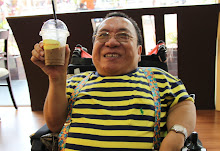Religion BOOK REVIEW Living a Monk's Life at Chinese Temples in a Quest to Expand the Soul JOURNEY TO HEAVENLY MOUNTAIN: An American's Pilgrimage to the Heart of Buddhism in Modern China; By Jay Martin; Hohm Press: 244 pp., $16.95 paper
MIKE MEYER
Mike Meyer is a writer at work on a memoir of his travels through the Middle Kingdom.
961 words
22 June 2002
Los Angeles Times
Home Edition
B-20
English
Copyright 2002 Los Angeles Times
Daytime visitors to China's Buddhist temples often walk away feeling anything but spiritually cleansed. Fleeced is more like it. The nation's ancient religious tradition, the Communist Party's official atheism and a burgeoning market economy have produced a wealth of restored temples that are at once revered, rebuked and revenue-generating.
At night, however, Chinese temples become themselves again, or at least the best version of themselves that they can. After the tour buses depart and the stall-holders pack up, the smell of incense overpowers that of cash; tranquillity replaces bustle.
It took me years of living in China to realize that temples should be seen on overnight visits--that they are still religious sanctuaries, not museums and fun fairs. Jay Martin is a much quicker study.
In 1998, the Claremont McKenna College professor embarked on a summer-long stay in southeastern China's temples, a bit of spiritual tourism documented in "Journey to Heavenly Mountain." Unlike most recent books about China, "Journey" is neither a travelogue nor memoir of the country's rapid economic evolution, but of its spiritual one. "I haven't come to look at [China], but to be a part of it," he writes.
Yet the people and places Martin encounters and describes so precisely--from venerable masters on mist-shrouded mountains to island-bound, angelic tour guides and devilish boatmen--are only part of the tale. "Journey" is about Martin's own quest to expand his soul by merging into the breaths of the multitudes around him--including those who turn temples into tourist traps.
At his first stop, at Lingyin, the Temple of Inspired Seclusion, he is momentarily taken aback by what feels like Disneyland mixed with Notre Dame. A travel writer would stop the account there. Yet Martin is after more than a description, a simile and segue to the next adventure.
"I could easily be cynical about Lingyin," he admits. "But actually being plunged into it without preparation and premeditation makes me see that I myself, and all of us, are put together in the same way--a bit of commerce here, some shallow pleasures there, old memories, new desires, new landscapes along with ancient plantings, and all fused with an authentic heart and a sacred soul--we are made of such assemblages. I came to China to live in Buddhist monasteries and revisit my soul. But I see here, right at the outset, that my quest is much more complicated than I thought.... I realize that if I am to find myself at all, it must be in the multitudes and varieties that I possess, the shallow along with the deep, and my very human, superficial desires along with my yearning for a bottomless divinity."
Martin ensconces himself in the life of a monk, taking residence in temples for two months, rising at 3 in the morning to pray. "I am content. Warm, drawn in, bowing and kneeling, following the group. The chanting begins, I am a Buddhist now. Then it is over. But--of course--not over, since it will resume tomorrow and never end until the world does. And if the Buddhists are right, the world will never end."
The monks accept him as part of the community. That Martin is an American matters none; some monks aver that he lived at the temple in a past life and came back. Nor does it matter that the order's newest monk is Catholic. A colleague reasons, "Catholics are on their way to becoming Buddhists. You are just a little bit ahead of other Catholics in the journey."
Buddhism, an abbot explains, holds that to reach the Buddha inside ourselves, we must enlarge our kind heart by cleansing ourselves of desires. Martin asks what desire is most difficult to give up.
"Beauty, the beauty of women," replies the 71-year-old monk.
Another abbot confesses that his greatest desire is his computer, which he uses to download the spiritual precepts called sutras.
"The desire to possess the attractions of society," says another. Others say it's the desire to understand quickly and the wish to rise above people.
For Martin, the question vexes him. How can he read a book, for instance, without desiring to read?
By the end of "Journey to Heavenly Mountain," Martin realizes that his deepest desire is the same one which drives the reader to turn the page: to find out more. Yet he has no intention of giving it up, for he concludes that "desires are inseparably woven into the mottled tapestry of life." And the soul was not what he thought it was, nor is China some enormous refueling stop where one can top off the spiritual tank merely by pulling in and opening one's wallet: "A talk with a tree can bring as fine a vision as an expensive journey to consult the wisest man in the farthest reaches of the universe."
Like the earthworm with which he boasts conversing on a forest walk, Martin burrows deeper and more expansively than the creature's form suggests. The worm doesn't get to respond, but the dozens of Chinese that the author meets do. It is these touching encounters that teach him, and us, the most about the soul; and they make "Journey to Heavenly Mountain" a rare, refreshing temple trip.
Subscribe to:
Post Comments (Atom)



No comments:
Post a Comment